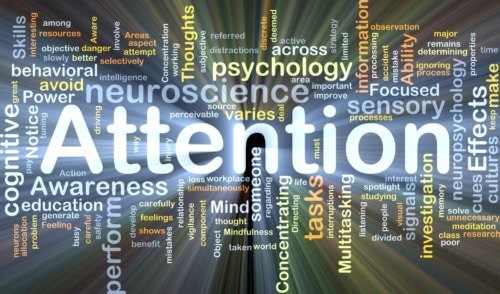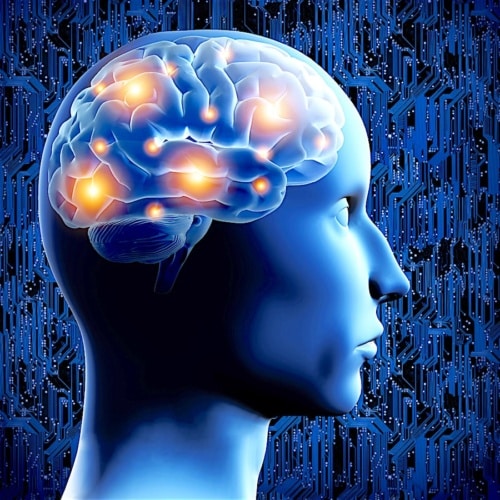Why teachers need training on the cognitive skills of students
By Nancy Weinstein
 There is a high-demand for research-backed educational curriculum. As one recent Mind/Shift article analogizes, “You wouldn’t take medicine that hasn’t been tested.” The logic follows that you wouldn’t take a prescription from a doctor who hasn’t been trained. Fortunately, all medical school students are required to take classes not only on medications but also on how to identify and treat adverse reactions.
There is a high-demand for research-backed educational curriculum. As one recent Mind/Shift article analogizes, “You wouldn’t take medicine that hasn’t been tested.” The logic follows that you wouldn’t take a prescription from a doctor who hasn’t been trained. Fortunately, all medical school students are required to take classes not only on medications but also on how to identify and treat adverse reactions.
Following the analogy, we posit that the far less-discussed, and perhaps far bigger, issue in education is that we ask teachers to administer research-backed curriculum with not much insight into who might have an “adverse reaction” and why.
Why does it matter? Just as with medications, when solutions work well it is smooth sailing and kids learn. In those cases, maybe it doesn’t matter. But when the prescribed curriculum doesn’t work, and we know that happens more often than it should, most teachers haven’t been well trained on how to pinpoint the cause of the student’s challenge and, consequently, how to adjust the delivery.

If we took the time to ensure that all teachers understood how the brain absorbs, processes and remembers information, referred to as neurocognition or cognitive skills, they will be far better positioned to support students at the source of their struggles.
How you might ask? By all accounts, understanding each student’s unique differences in cognition is difficult to observe in a classroom setting. We can’t expect teachers to identify what lies well beneath the surface in each student’s unique mind.
However, schools can assess the core areas of cognition, i.e. students’ executive functions, memory, reasoning and processing speed. And we can reasonably expect teachers to use that information to support students as they need it. But first we must train teachers on how a weakness in one area of cognition could adversely affect a student while he is trying to understand, work in a group, or do his homework independently. And then we must show teachers how they can use the student’s strengths, along with research-backed strategies, to help that student adapt his approach to learning.
 The reasons neuroscience has not historically been part of standard teacher training programs are numerous and varied. Not least of which is that enormous progress has been made in the last decade and schools have not yet caught up. But the progress is promising. Harvard GSE was the first to offer a masters degree in Mind, Brain and Education and Johns Hopkins School of Education recently began offering a certificate in Mind, Brain and Teaching. This year, Vanderbilt will graduate its first ever PhD students in Educational Neuroscience.
The reasons neuroscience has not historically been part of standard teacher training programs are numerous and varied. Not least of which is that enormous progress has been made in the last decade and schools have not yet caught up. But the progress is promising. Harvard GSE was the first to offer a masters degree in Mind, Brain and Education and Johns Hopkins School of Education recently began offering a certificate in Mind, Brain and Teaching. This year, Vanderbilt will graduate its first ever PhD students in Educational Neuroscience.
Educational leaders are embracing the importance of merging the fields of neuroscience and education. And while not every teacher needs the in-depth expertise of these programs, every teacher would benefit from an introductory class on the brain and learning. We urge every education program to make such a class a requirement for all teachers.
 But that doesn’t solve the here and now problem which is helping our active teachers apply neurocognitive insights into their classrooms. Existing teachers will need several hours of professional development. This could be done at a nearby college, online courses, or a district-led development half-day seminar. Since every teacher (and subsequently every student) would benefit, districts can justify the expense.
But that doesn’t solve the here and now problem which is helping our active teachers apply neurocognitive insights into their classrooms. Existing teachers will need several hours of professional development. This could be done at a nearby college, online courses, or a district-led development half-day seminar. Since every teacher (and subsequently every student) would benefit, districts can justify the expense.
A professional development program might be slightly different from a graduate class. Understandably it might need to begin with an emphasis that neuroscience is not the next new fad– teachers could be justifiably jaded if we asked them to add anything new. And then a program must provide educators with the resources to immediately apply what they learn in a practical way.
Here is an outline of what an effective professional development program would need to include:
• The evidence that cognitive skills are the underlying driver of how students learn is not new. In fact, there are over 100 years of almost undisputed evidence that understanding a student’s cognition will have a significant positive impact on outcomes. What is new is the ability to efficiently measure these skills beyond traditional measures of observation and psycho-educational evaluations. Computer-based cognitive assessments offer the opportunity to assess students accurately and cost-effectively in approximately one hour. While they might not provide all the insights of observation by a psychologist, they do provide the insights general education teachers need to support the vast majority of students.
 • We know teachers spend a disproportionate amount of time helping students who struggle. Understanding a student’s cognition enables teachers to help each student in less time with better results. Consider the student who seems to understand everything in class and then fails the exam. How valuable would it be for the teacher to know that the student’s weaker memory skills were inhibiting his longer-term retention? And then we give the teacher the very straightforward strategies to help that student more efficiently encode information.
• We know teachers spend a disproportionate amount of time helping students who struggle. Understanding a student’s cognition enables teachers to help each student in less time with better results. Consider the student who seems to understand everything in class and then fails the exam. How valuable would it be for the teacher to know that the student’s weaker memory skills were inhibiting his longer-term retention? And then we give the teacher the very straightforward strategies to help that student more efficiently encode information.
Conversely, what if the teacher were to know that in fact the student’s memory skills were just fine, but instead his weaker flexible thinking interfered with his ability to adapt when he encounters a twist on the examples shown in class? Currently the teacher only sees the perplexing puzzle of the classic underperformer. If the teacher possessed the added insight of cognitive skills, the improvements could be dramatic.
• Yes, teachers will need to learn new information, but it is not overwhelming. And teachers will be encouraged to learn that they already possess a strong basis for understanding cognitive skills—their own self-awareness of how they learn “naturally” and what requires more effort. Neuroscience simply provides the scientific explanation along with the common language to describe what is going on inside our students’ heads and how we can help them.
• Finally, teachers will be excited to see there are a growing number of neuroscience resources that will provide them with concrete, research-backed strategies to support individual learners. Groups like Deans for Impact, The Learning Scientists, Visible Learning, and yours truly, Mindprint Learning, have all made great strides in taking cognitive research and providing practical applications for classroom instruction.
Author
Further Reading
- edCircuit- How Do We Achieve Self-Regulated Learning?
- Ed Week- Neuroscience Education and Why It Matters
- Science Daily- A vision for revamping neuroscience education






